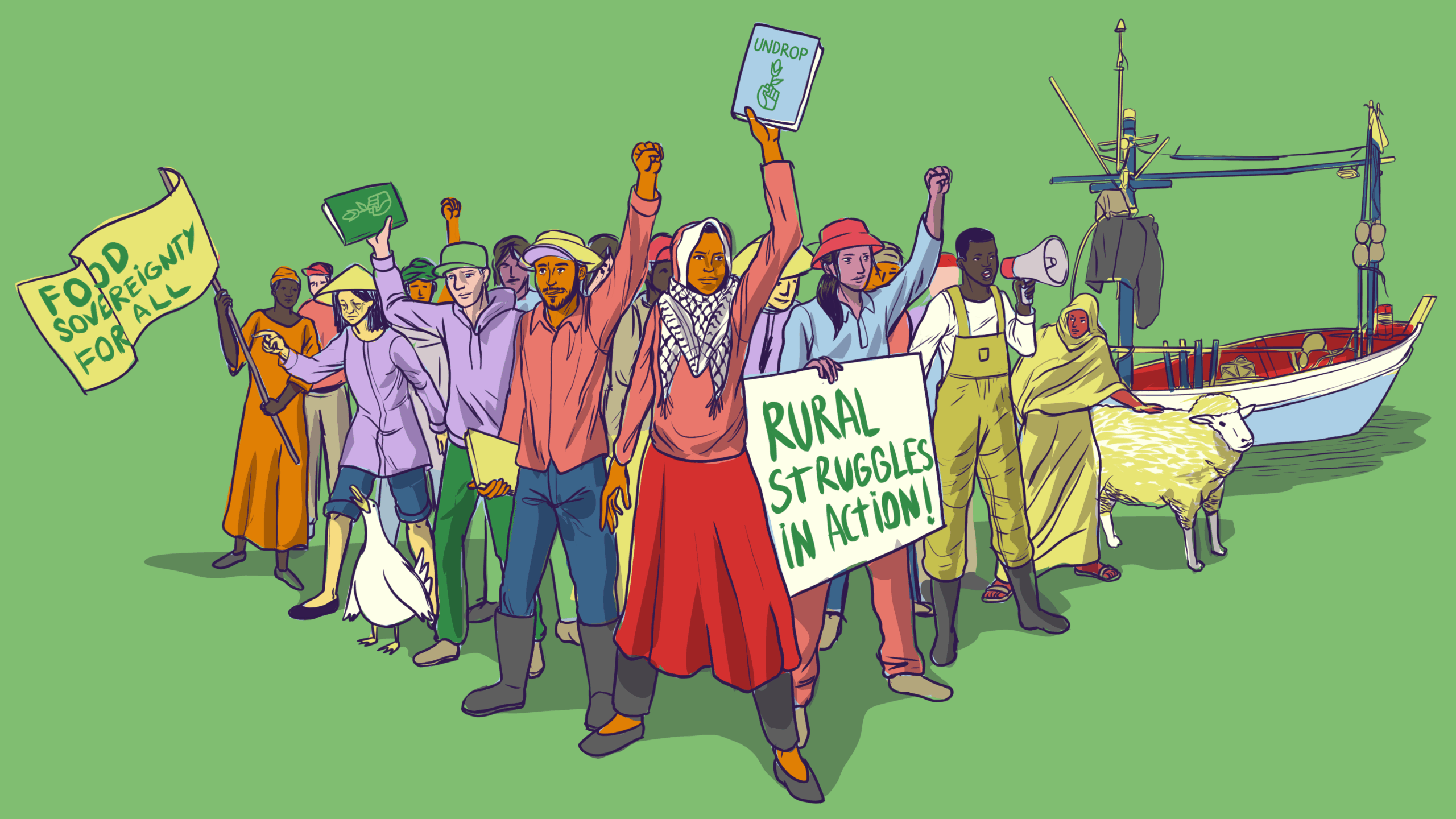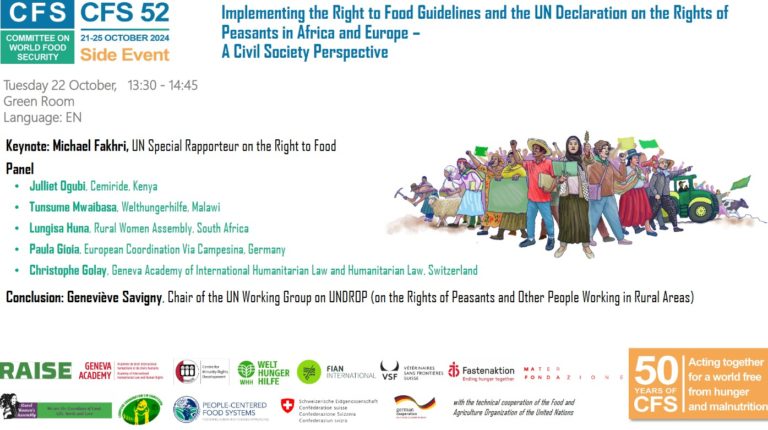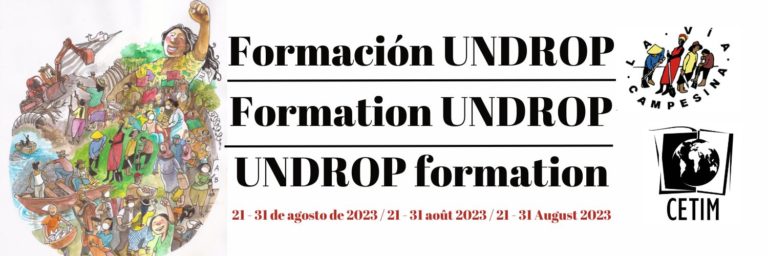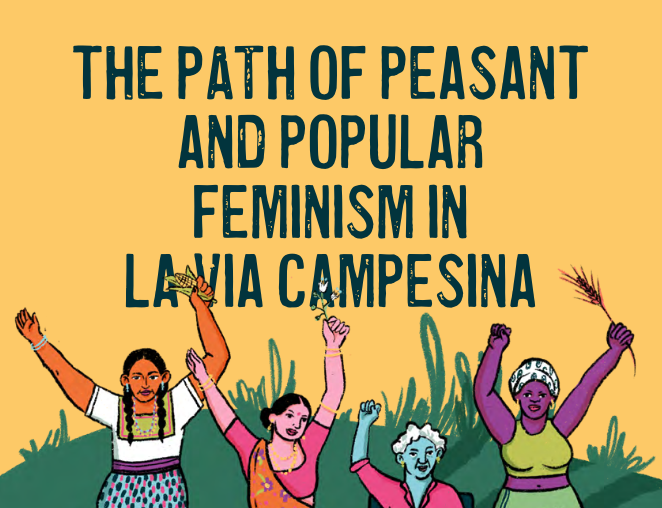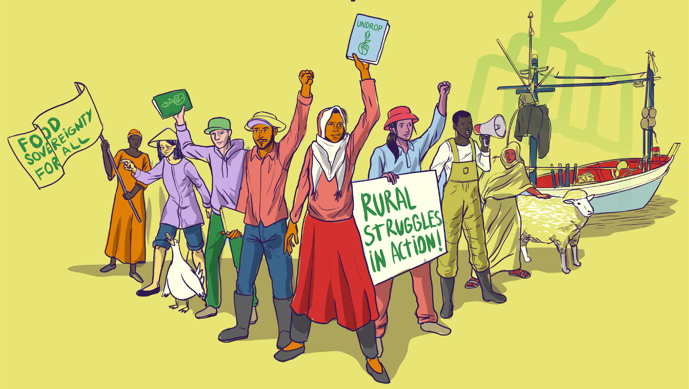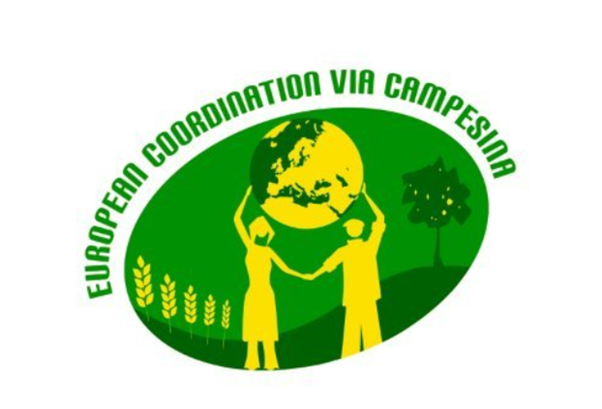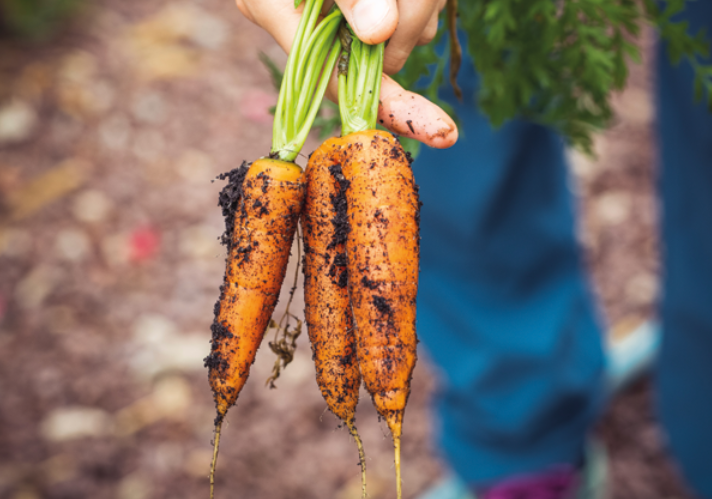When rural communities claim their rights! The rights-holders of the UNDROP
The process that led to the adoption of the United Nations Declaration on the Rights of Peasants and Other People Working in Rural Areas (UNDROP) was, above all, an exemplary mobilization and convergence of rural movements. These movements came together in their advocacy efforts to secure this common instrument to fight for the transformation of food and agricultural systems towards real democracy and social justice. These movements were aware of their specificities but were united around similar struggles against common causes of rights violations and a non-commercial relationship with their environments and territories. They saw the Declaration as a tool to advance their specific and shared struggles.
The aim of this article is to present the different rural constituencies included in the scope of the Declaration, as well as the main organizations mobilized in their support.
In addition to peasants, Article 1(a) of the UNDROP includes other rural workers such as livestock farmers, pastoralists, fishers, hunter-gatherers, artisans linked to agriculture, indigenous peoples, transhumant and nomadic communities, wage workers, and migrant workers (regardless of their legal status).
During the sessions of the Intergovernmental Working Group tasked with drafting the Declaration, fishers were represented by the World Forum of Fisher Peoples (WFFP), which represents artisanal fishing communities, defends their rights, and promotes fishing practices that respect natural resources and care for future generations. The WFFP was founded in response to the increasing pressure on small-scale fishing communities, including habitat destruction, tourism, pollution, invasion of their territories by large fishing fleets, illegal fishing, bottom trawling, mangrove destruction, industrial aquaculture, nuclear waste and dumping garbage and overfishing. WFFP member organizations engage in the facilitation of the ratification of C-188 Safety at Sea Convention which attempts to ensure social welfare schemes and protection of coastal communities.
Agricultural workers were represented by the International Union of Food, Agricultural, Hotel, Restaurant, Catering, Tobacco and Allied Workers’ Associations (IUF). The IUF unites workers across the entire food production chains and fights for workers’ rights and democracies. The IUF has contributed to the development of international labour standards in the International Labour Organization (ILO). It has also raised the issue of child labor, which has been addressed and included in relevant regulatory processes. IUF’s involvement also facilitated long-term support from the ILO for the negotiation process of the UNDROP, as well as the inclusion of key provisions on workers’ rights in the instrument. In 2023, the IUF contributed to the development of the ILO Policy guidelines for the promotion of decent work in the agri-food sector.
Nomadic pastoralists were represented by the World Alliance of Mobile Indigenous Peoples (WAMIP), which supports and strengthens mobile indigenous peoples in maintaining their way of life, livelihoods, and cultural identity. WAMIP advocates for the sustainable management of common resources and the respect of the rights of nomadic communities. The interventions of pastoral and nomadic communities during the negotiation of the UNDROP were crucial in demonstrating the importance of the collective dimension of natural resources (watercourses, pastures, etc.).
The International Federation of Rural Adult Catholic Movements (FIMARC) also participated. FIMARC promotes solidarity among rural populations and peasants, serving as their voice within the United Nations. The main focus of their work is food sovereignty, a key concept in light of FIMARC’s goal of improving the living conditions of farming communities and ensuring a dignified life for all.
All these organizations shared the conviction that a Declaration was necessary to counter the constant violations of the rights of people working in rural areas, violations often committed for the benefit of private interests. They contributed to the drafting of the Declaration and emphasized the clear need for such an instrument, not only to ensure the survival of rural areas, but also to guide legal and political efforts toward socioeconomic and environmental justice in rural territories, as well as fairer and truly sustainable food systems. The involvement of all these organizations has strengthened the solidarity of rural populations and the shared destiny they hold. Similarly, the convergence of struggles among rural movements will be key to the future of the promotion and implementation of the UNDROP.

